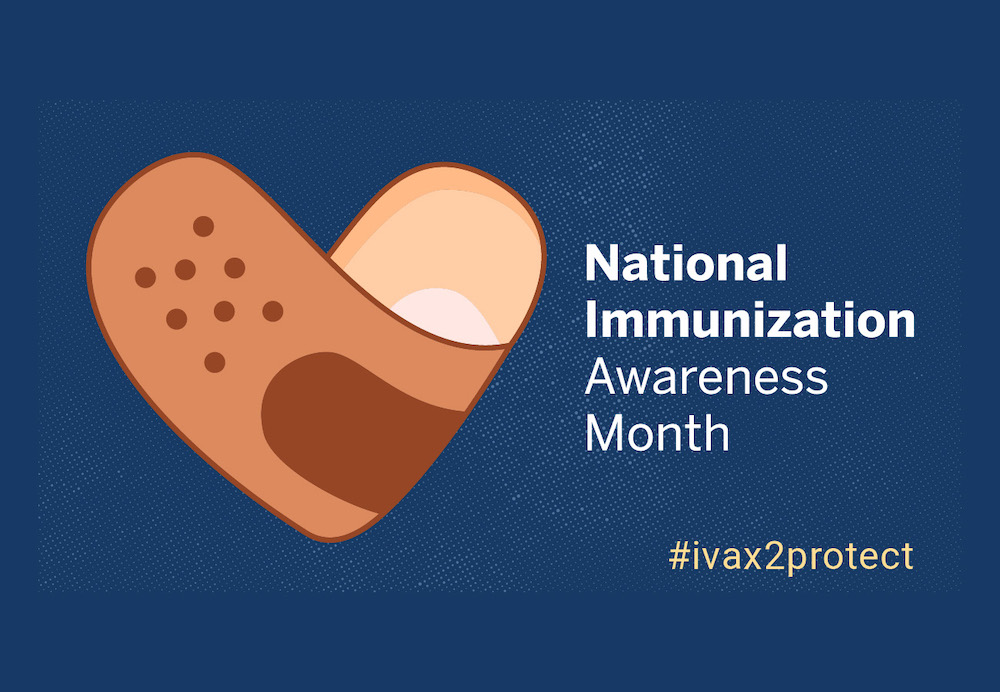LITTLE ROCK — As the new school year kicks off, one of the best ways families can protect themselves from illness is to ensure they’re up to date on vaccinations. This August, Arkansans can participate in National Immunization Awareness Month by contacting their doctors and scheduling routine vaccinations.
Bryan Mader, extension assistant professor and health specialist for the University of Arkansas System Division of Agriculture, said vaccinations are critical for the current and future health of children.
“For children, receiving vaccinations according to the recommended timeline is essential for their health and helps to provide immunity for potentially life-threatening illnesses,” Mader said. “Several vaccines have been around for many years – in some cases, for decades – and have been shown to be safe and effective ways to reduce serious illness.”
For adults, Mader said immunization is “one of the easiest, safest and most convenient ways to prevent illness.”
“Vaccinations in adulthood are necessary to update the immunity received from childhood vaccinations, as this immunity can wear off over time,” Mader said. “Certain vaccines, such as the influenza – or flu – vaccine should be received each year in order to help keep you healthy.”
As the COVID-19 pandemic continues, it can be confusing to navigate vaccines and boosters. Mader said the current recommendation for youth and adolescents aged 6 months and older is to get a Pfizer or Moderna vaccine. Children and adolescents aged 5 years and older who receive the Pfizer vaccine should get a booster at least five months after their second shot.
“While children and adolescents are typically at lower risk than adults of becoming severely ill or hospitalized from COVID-19, it is still possible,” Mader said.
For adults, everyone who is eligible should receive a COVID-19 vaccine (or a two-dose series) as well as a booster dose. Mader said Moderna recipients aged 18 and older should get a booster at least five months after the second shot; Pfizer recipients aged 5 and older should get a booster at least five months after the second shot; and Johnson & Johnson recipients aged 18 and older should get a Pfizer or Moderna booster at least two months after their initial shot.
Visit the Centers for Disease Control and Prevention’s website to learn more about the COVID-19 vaccine and to locate a vaccination or booster site.
For pediatric vaccines, Mader said “scheduling these with your child’s pediatrician is always the easiest route.” The Arkansas Department of Health also provides vaccines at its local health units in each of the state’s 75 counties, and those can be found on the Department of Health website.
For adults, Mader said many pharmacies – such as CVS, Walgreens, local pharmacies and more – as well as bigger stores and retailers, such as Kroger and Walmart, provide immunizations year-round, including flu vaccines. Mader said doctors’ offices and health clinics can offer most adult vaccinations, such as Tdap (the vaccine for tetanus, diphtheria and pertussis), shingles, varicella (chicken pox), hepatitis and MMR, which protects against measles, mumps and rubella.
“Making appointments with your doctor’s office, nurse, pharmacist or other healthcare provider is the easiest way to obtain these immunizations,” Mader said.
The CDC’s immunization schedules website provides information on which vaccines children and adults should get and when they should get them, illustrated in a calendar format. The Arkansas Department of Health’s immunization website is also a helpful resource.
With the recent arrival of monkeypox, a viral disease related to smallpox, in the United States, Mader said the CDC recommends a monkeypox vaccine for “anyone who has been exposed to monkeypox and people who may be more likely to get monkeypox.”
This includes people who have been identified by public health officials as a contact of someone with monkeypox; people who are aware that one of their sexual partners in the past two weeks has been diagnosed with the virus; and people who have had multiple sexual partners in the past two weeks in an area with known cases of monkeypox. Mader said this group also includes people whose jobs may expose them to orthopoxviruses, such as laboratory workers who perform testing for orthopoxviruses or handle cultures or animals with orthopoxviruses, and some designated healthcare or public health workers. For more information about the virus, visit the CDC’s monkeypox website.


